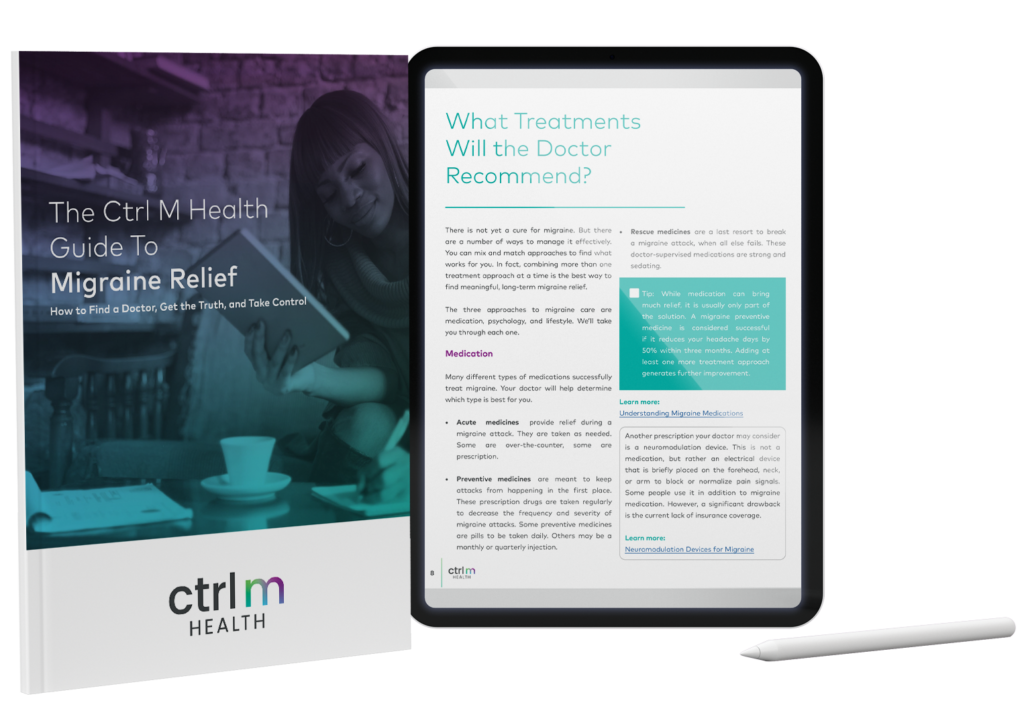Your body needs the right amount of vitamins and minerals to function properly. One of those vitamins is B2—also known as riboflavin—which occurs naturally in foods like milk, eggs, almonds, meat, and green vegetables. Grains and cereals in the U.S. and other countries are also fortified with vitamin B2.
Our bodies need B2 for energy production; each and every cell requires B2 for the normal functioning of its own energy factory, called mitochondria. Mitochondrial dysfunction is thought to play a role in causing migraine. So it makes sense that headache researchers have been intrigued by B2 (riboflavin) for migraine as a nutritional supplement with potential to reduce headache frequency or severity.
Are you getting enough B2 (riboflavin) supplement for migraine? What the research says
 The recommended daily allowance for riboflavin is 1.1 mg/day for men and 1.3 mg for women. However, most Americans consume more than that, making the typical symptoms of riboflavin deficiency quite rare.
The recommended daily allowance for riboflavin is 1.1 mg/day for men and 1.3 mg for women. However, most Americans consume more than that, making the typical symptoms of riboflavin deficiency quite rare.
However, evidence has also pointed to a relationship between improper mitochondria function and migraine. Therefore, studies have begun investigating whether B2—which boosts mitochondria function—may relieve migraine.
Studies on B2 (riboflavin) for migraine treatment have been consistent in finding that B2 is efficacious and well-tolerated, including:
-
- In a randomized study of 55 people with migraine, half took a 400 mg dose of B2 (riboflavin) daily for 12 weeks; the other half was given a placebo. Compared to the placebo group, the riboflavin group saw a reduction in attack frequency, and their number of headache days was cut down by two per month.
- In a randomized trial of 130 people with migraine, half were given a placebo, half were given a supplement containing high doses of riboflavin, magnesium, and coenzyme Q10. After three months, the supplement-takers had fewer migraine days, and migraine intensity was significantly reduced.
Because such studies have shown riboflavin’s efficacy in relieving headaches, the American Academy of Neurology and the American Headache Society now recommend B2 for migraine. In addition, the Canadian Headache Society recommends 400 mg per day of riboflavin for migraine headache prevention.
Side effects of Vitamin B2 (riboflavin) supplement
Riboflavin has no adverse effects, even when taken in high doses. The only reported side effects are bright yellow urine and increased amounts of urine.
When taking high doses of riboflavin supplements, it’s best to divide up your daily dose over the course of the day. For example, a vitamin B2 (riboflavin) 400 mg daily dose can be divided up into four pills taken every three hours, or two pills taken twice a day.
This is because the body has a limited ability to absorb riboflavin. Excess amounts taken in a single dose will simply pass through the body and be eliminated through urination. Because taking B2 with food slows its passage through the gut and increases absorption, we recommend pairing your B2 supplements with food.
Finally, although riboflavin is considered safe, remember that it’s always best to check with your doctor first if you’re considering taking any dietary supplements for the first time, are pregnant, nursing, taking any medications, or have any medical conditions.
To learn more about the research behind B2 (riboflavin) for migraine, visit our vitamin B2 research page. For more about the links between diet and migraine, sign up to receive our free eBook The Care Tuner Guide to Migraine Nutrition.
The Care Tuner Guide to Migraine Relief
Untreated migraine tends to worsen over time, so if you suspect you have migraine, it’s important to get help. We’ve compiled everything you need, including what to expect, pitfalls to avoid, and what you can do right now to get relief.






